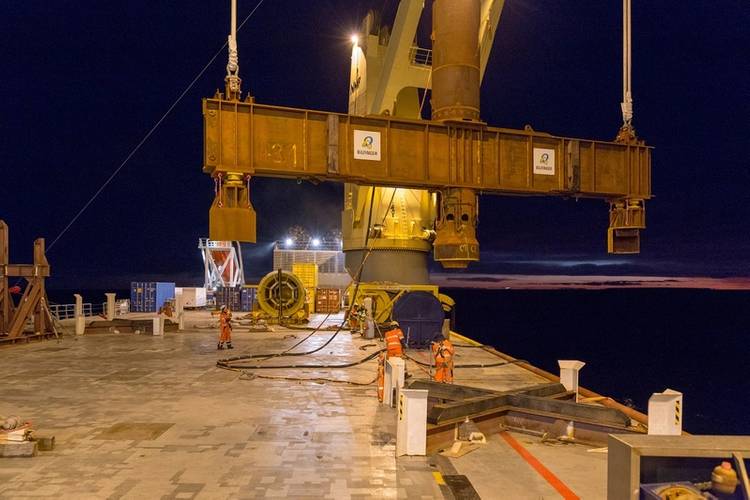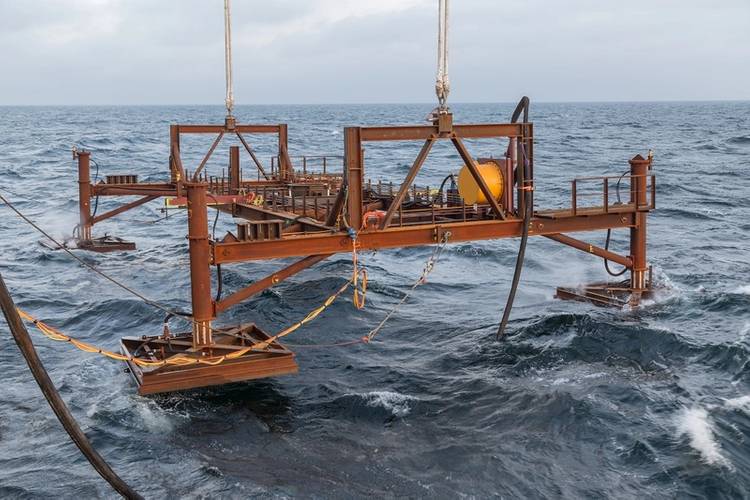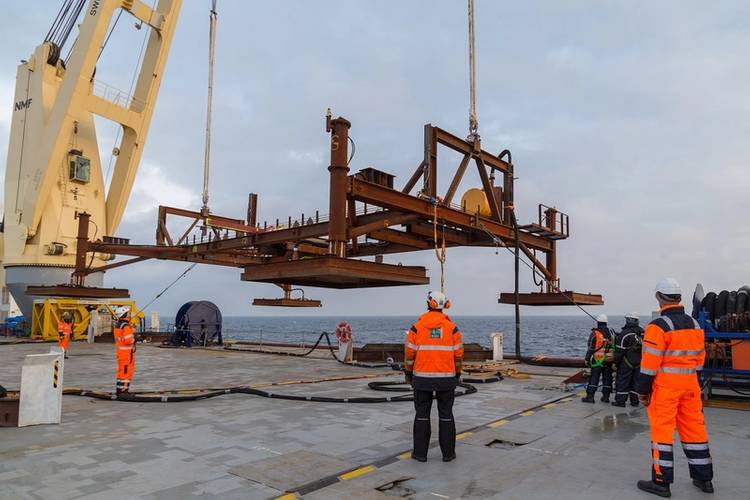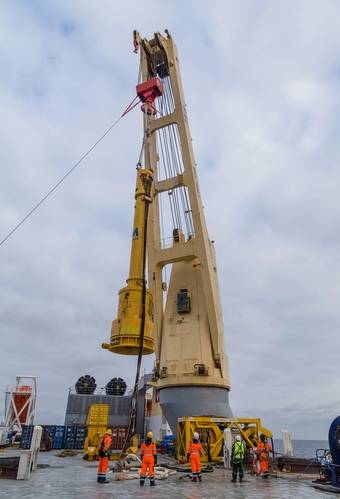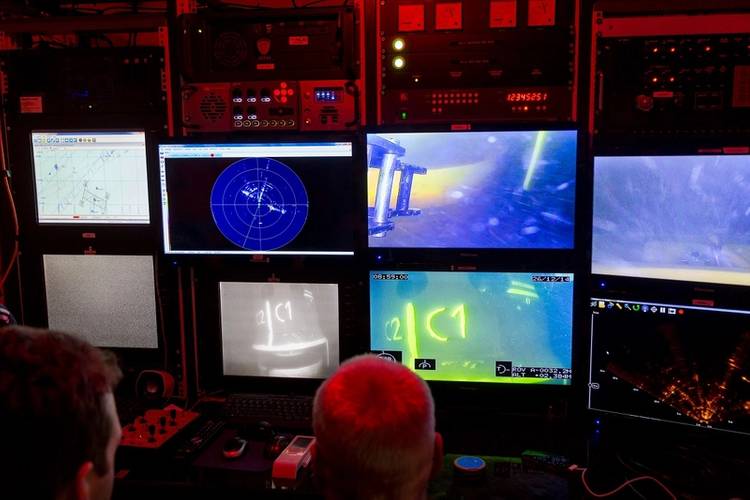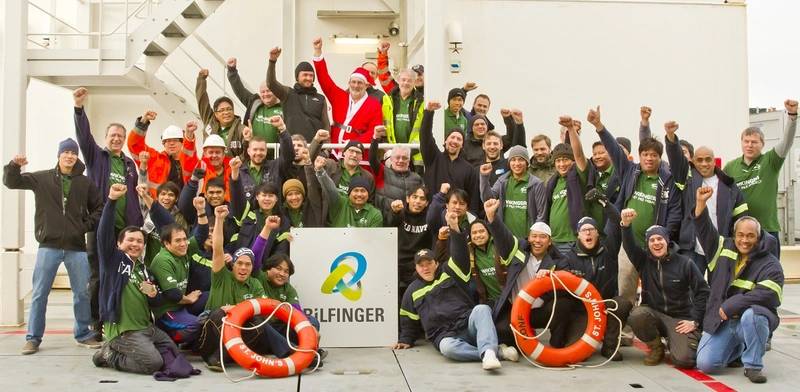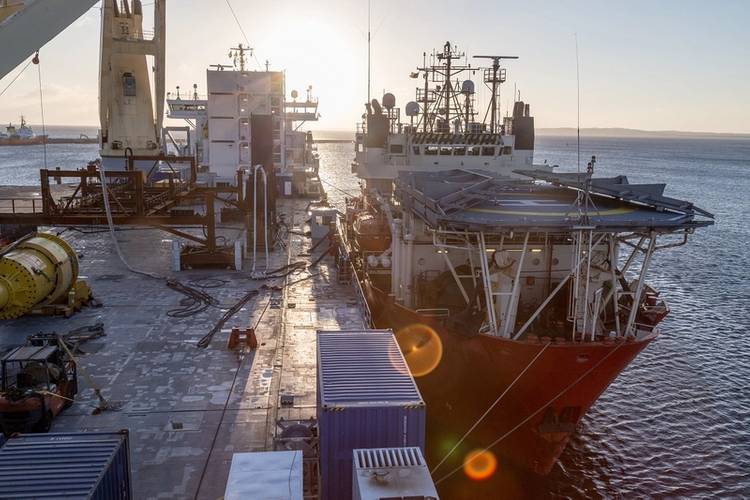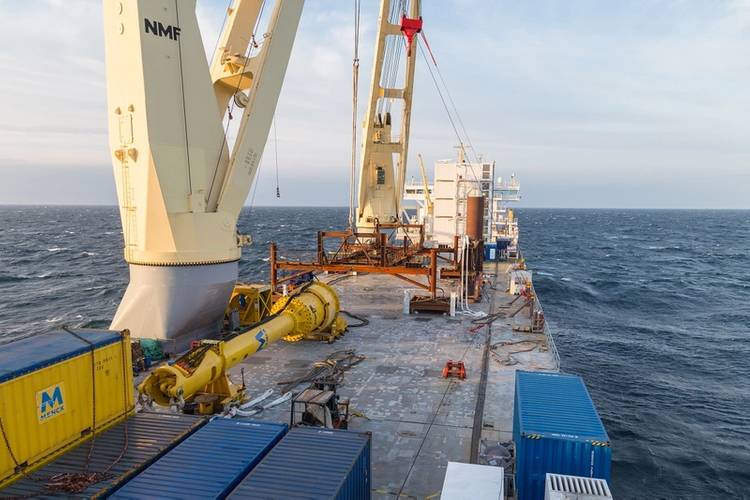MV Lone proves as project platform for Wikinger wind farm
SAL Heavy Lift informs it has completed the second phase of the Wikinger Pile Testing Campaign with DP II Class vessel MV Lone. Once again, MV Lone served as project platform for SAL Heavy Lift customer Bilfinger.
The full test campaign comprised two phases with the tests being performed at three locations. During the first phase in November 2014 three sets of three piles each were driven at designated locations to required depths. The second phase was to undertake restrike and pull out tests on selected piles with-in the three locations. The results of the test have to be analyzed with a view to optimize the pile design for the foundations of the planned wind farm considering the given soil conditions. As with the previous phase the vessel was fully manned with specialists and mariners all with the sole aim of bringing the work to a successful conclusion.
Some challenges were encountered during the work. One of the major problems was to manage the inclement weather and making best use of the available windows. MV Lone was able to rapidly get from and to the various test sites in anticipation of a favorable, albeit perhaps short weather window. This did help to limit time loss as well as it confirmed once again the value to the client of using a DP Class II vessel. The second phase was finally completed to the satisfaction of all early January 2015 with completion of the final demobilization of the vessel.
MV Lone serves as an exceptional project platform with her 2,000 m² of clear main deck and her two 1,000 t SWL cranes. As a DP Class II vessel, MV Lone can be operational within a very short period of time: from arrival in the field, it takes typically no more than two hours, producing clear scheduling and cost advantages. On top, her operational speed of 20 knots further enhances the efficient services to the client.
Located 30 km off the island of Rügen in the Baltic Sea and covering an area of 34 km², the Wikinger offshore wind farm project will consist of 70 wind turbines with a total capacity of up to 350 MW. The Spanish energy company Iberdrola is developing the project, scheduled to begin operations in 2017.











